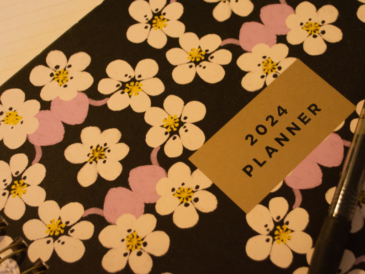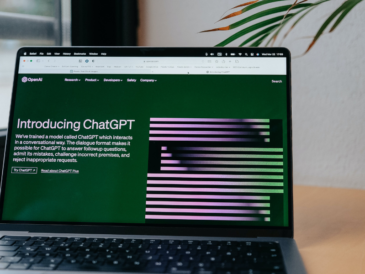Photo taken from Pexels
The day it was announced Roe v. Wade was to be overturned, I felt a familiar pit in my stomach. The same feeling that I got after a school shooting or when a president told the nation to drink bleach rather than wear a mask to avoid a preventable illness.
It’s a feeling that comes from knowing that nothing would change. A feeling I had gotten all too acquainted with throughout the past few years— fear. It entered my body as eagerly as the air into my lungs; I didn’t know what to do.
In hindsight, it should have been obvious that this was coming. The not-so-silent majority had been lobbying for years to make it happen and it was no secret that the Supreme Court had steadily grown more conservative, a trend bolstered by the three justices former President Trump appointed.
However, I had grown complacent, never really believing that Roe would actually be reversed. It seemed impossible that the court could ever make a decision to remove civil rights from a group— until it happened.
I spoke to Corrinne Rovetti, family nurse practitioner and former co-director of the Knoxville Center for Reproductive Health. KCRH served this community for just shy of 47 years, situated on Clinch Avenue like a beacon of safety until they were forced to close late last year.
The center provided contraception, abortions and hope for women in need. I asked Rovetti what her first reaction was upon learning that Roe was going to be reversed. Her answer didn’t surprise me, as she expressed her feelings of “shock” and “being on edge.” She told me that the clinic had prepared for this possibility, speaking to the board of directors, ensuring patients found other providers just in case and fought until the end to remain open. KCRH had become especially important as the only provider of this care, as a devastating arson had eliminated Planned Parenthood. They were all that was left.
They were forced to close their doors anyway.
Rovetti has dedicated her life to this work.
My next question was about as broad as a question could be, but Rovetti answered it with dexterity that has been defined by her decades of experience.
“Why are comprehensive reproductive rights so important?”
“Women and children make up the highest percentage of impoverished populations throughout the world. Without the ability to choose the size of their families, this problem will only grow,” Rovetti said.
Those in these groups are then subject to a diminished
quality of life and access to education, resulting in a cycle
that is not easily broken. “Control over one’s own body,”
she asserted, “is both a political and economic statement.”
I have often noticed that legislators who claim to be pro-life are instead pro-birth. Therein lies their hypocrisy, screaming for the ‘safety’ of children, yet doing nothing once they are born. Politicians abandon them.
Rovetti pointed out that this makes fighting for reproductive options in the south even more important. It is dangerous to write off the southern states as “backwards” areas that are “too far gone,” she noted when there are so many in need of care that have now been tossed aside. If we don’t fight now, it will be too late.
Keeping in this line of thinking, we next discussed Tennessee’s “trigger laws,” which were put into place as soon as Roe was overturned. These laws contain incredibly strict language. Exceptions against abortion are not made in cases of rape, nor for victims of incest.
The doctors that Rovetti has spoken to are scared, and now consult with a lawyer before making important medical decisions that, now, may be illegal. Doctors can lose their jobs, their license and even their freedom for making necessary medical judgments that may be needed to save the lives of patients. Doctors are reluctant to enter this state to practice, resulting in a lack of reproductive experts and long wait times for those who remain.
“It is a terrifying thought to be pregnant in Tennessee,” Rovetti said. A statement that rings more true with each new restriction implemented.
So far, our conversation had been focused on the state level, but what is being done federally?
The Executive branch has been very vocal recently about ensuring that women have a choice, even if the Court has decided the federal government has no right to say so. Knowing this background, I asked if Rovetti believed this administration was doing enough to protect women’s rights.
“The intentions are there, but not enough is being done to bring them to fruition,” Rovetti said. She said that if the executive had acted when democrats held both the House and Senate, either in Obama’s administration or the current, something could have been done. However, at this moment, it is too late.
Another point brought up was that even if codified by Congress: what would stop those in power from flip-flopping each two-year cycle from having to not having these liberties? This would make this situation even more complicated.
The situation seems like an impossible one to rectify, but there is something that can be done. I asked Rovetti what her thoughts were and she provided two insightful points.
Firstly, the golden rule: vote! Voter turnout, especially in TN is not at the level that it could be and if it increased, so much change could be made. Stop letting representatives you didn’t choose make the rules that govern your life, make your voice heard and encourage others to do the same.
Secondly, she told me that Gen Z gives her an immense amount of hope. This generation is extremely organized and efficient in protesting, she shared, and using that skill to protest and make change is going to be what makes change in the long run.
We are a progressive generation and a generation that goddamnit will make sure our voices are heard from something as important as human rights to a microtrend. We must act not only to fight for abortion rights but to ensure that other contraceptive rights that we have taken for granted are taken away from us.
To conclude our conversation I asked Rovetti what she would say to a woman in a situation where she feels as if she has no options. She told me that the KCRH Facebook page is still running and is a trusted source for up-to-date, accurate information that applies to women in this state.
She also spoke about abortionfinder.org, where individuals can go to enter their specific information to determine what is the best option for them.
I don’t know what the future holds, but I do know that without the efforts available to us, voting and sharing and fighting, we stand no possibility to make change. It is not enough to witness injustice happen— we must act if we ever hope for an egalitarian society.





